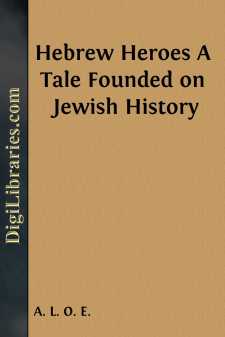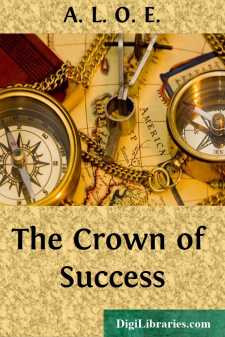Categories
- Antiques & Collectibles 13
- Architecture 36
- Art 48
- Bibles 22
- Biography & Autobiography 813
- Body, Mind & Spirit 142
- Business & Economics 28
- Children's Books 14
- Children's Fiction 11
- Computers 4
- Cooking 94
- Crafts & Hobbies 4
- Drama 346
- Education 46
- Family & Relationships 57
- Fiction 11828
- Games 19
- Gardening 17
- Health & Fitness 34
- History 1377
- House & Home 1
- Humor 147
- Juvenile Fiction 1873
- Juvenile Nonfiction 202
- Language Arts & Disciplines 88
- Law 16
- Literary Collections 686
- Literary Criticism 179
- Mathematics 13
- Medical 41
- Music 40
- Nature 179
- Non-Classifiable 1768
- Performing Arts 7
- Periodicals 1453
- Philosophy 64
- Photography 2
- Poetry 896
- Political Science 203
- Psychology 42
- Reference 154
- Religion 513
- Science 126
- Self-Help 84
- Social Science 81
- Sports & Recreation 34
- Study Aids 3
- Technology & Engineering 59
- Transportation 23
- Travel 463
- True Crime 29
Hebrew Heroes A Tale Founded on Jewish History
by: A. L. O. E.
Description:
Excerpt
CHAPTER I.
FAITHFUL TO THE DEATH.
The sun was setting gloriously over the hills which encompass Jerusalem, pouring its streams of golden light on the valleys clothed with the vine, pomegranate, and olive, sparkling on the brook Kedron, casting a rich glow on flat-roofed dwellings, parapets, and walls, and throwing into bold relief from the crimson sky the pinnacles of the Temple, which, at the period of which I write, crowned the height of Mount Zion. Not the gorgeous Temple which Solomon had raised, that had long ago been given to the flames, nor yet the Temple as adorned by King Herod: the building before us stands in its simple majesty as erected by the Hebrews after their return from Babylon under the leadership of Zerubbabel and Jeshua. Not the might of the powerful, nor the gold of the wealthy, but the earnest zeal of a people down-trodden and oppressed had built that Temple; and its highest adornment was the promise which Haggai's inspired lips had uttered: The Desire of all nations shall come, and I will fill this house with glory, saith the Lord of hosts (Hag. ii. 7). The glory of this latter house shall be greater than that of the former (Hag. ii. 9).
The fulfilment of that promise was still a subject for faith; and seldom had faith had to breast a fiercer storm of persecution than that which was sweeping over God's ancient people at the time when my story opens, about 167 years before the Christian era. The Roman had not yet trodden the soil of Palestine as a conqueror; but a yoke yet more intolerable than his lay on the necks of the sons of Abraham. Antiochus Epiphanes, king of Syria, one of the most merciless tyrants that ever existed, bore rule in the city of David. He had deluged the streets of Jerusalem with blood, he had plundered and polluted the Temple, offered the unclean beast upon God's holy altar, and set up the image of Jupiter Olympus in the place dedicated to the worship of the Lord of Sabaoth. It was a time of rebuke and blasphemy, of fiery persecution against the one pure faith; and if some shrank back from the trial, other Hebrews showed that the spirit of Shadrach and his brethren still lived amongst the people of Judaea.
On the evening which I am describing, a young man was wandering among the clumps of hoary olive-trees which shaded a valley on the eastern side of Jerusalem. The red sunbeams pierced here and there between the grey branching stems and through the foliage, and shone full on the figure of Lycidas the Athenian. No one could have mistaken him for a Hebrew, even had the young man worn the garb of a Jew instead of that of a Grecian. The exquisitely-formed features of the stranger were those which have been made familiar to us by the masterpieces of antiquity treasured in our museums. Lycidas might well have served as model to Phidias for a statue of Endymion. His form was of faultless proportions, remarkable rather for symmetry and grace than for strength; and his face might have been deemed too feminine in its beauty, but for the stamp of intellect on it....




